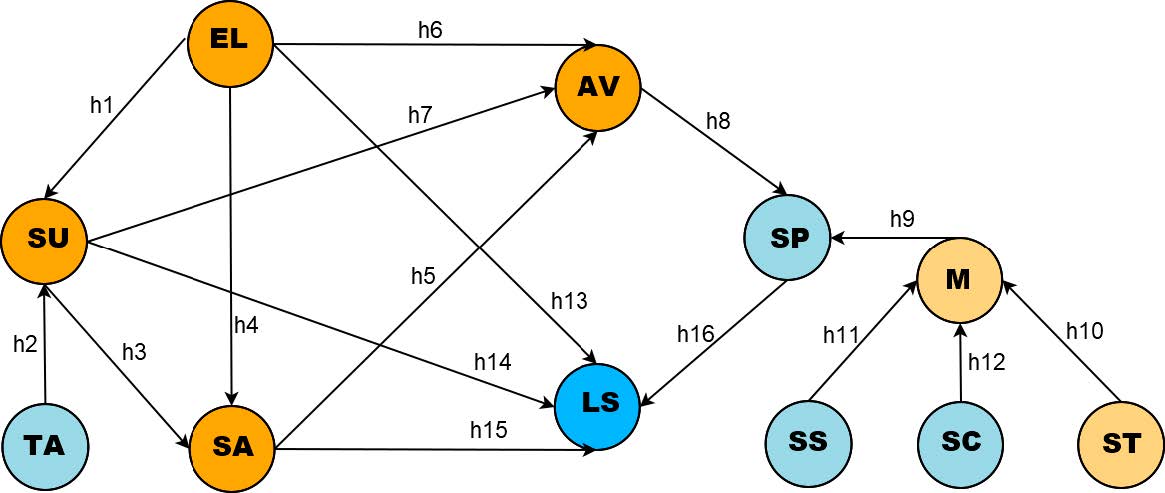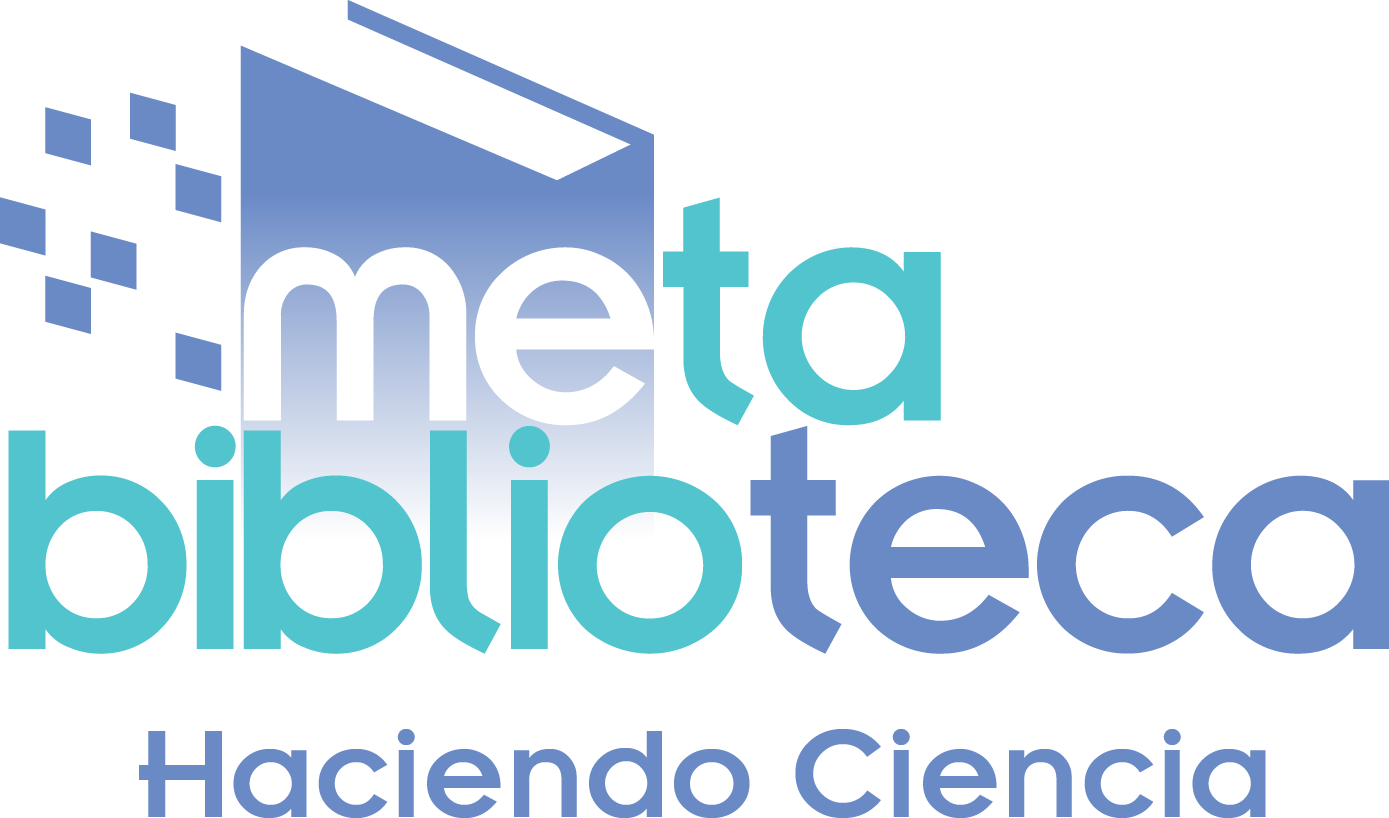Pedagogical impact during the pandemic of a virtual classroom with lightboard
Impacto pedagógico durante pandemia de un aula virtual con lightboard


This work is licensed under a Creative Commons Attribution-NonCommercial-NoDerivatives 4.0 International License.
Copyright statement
The authors exclusively assign to the Universidad EIA, with the power to assign to third parties, all the exploitation rights that derive from the works that are accepted for publication in the Revista EIA, as well as in any product derived from it and, in in particular, those of reproduction, distribution, public communication (including interactive making available) and transformation (including adaptation, modification and, where appropriate, translation), for all types of exploitation (by way of example and not limitation : in paper, electronic, online, computer or audiovisual format, as well as in any other format, even for promotional or advertising purposes and / or for the production of derivative products), for a worldwide territorial scope and for the entire duration of the rights provided for in the current published text of the Intellectual Property Law. This assignment will be made by the authors without the right to any type of remuneration or compensation.
Consequently, the author may not publish or disseminate the works that are selected for publication in the Revista EIA, neither totally nor partially, nor authorize their publication to third parties, without the prior express authorization, requested and granted in writing, from the Univeridad EIA.
Show authors biography
Abstract: This paper analyzes the influence of a virtual classroom with a lightboard on the pedagogical impact generated in students of two synchronous engineering courses taught during the Covid 19 pandemic. A technology acceptance model analyzed the influence of the virtual classroom with lightboard, the central core of analysis being the students' learning satisfaction. The results show that the ease of receiving the lectures for students, the teacher's chosen methodology, and the support material positively influence the student's learning process. The lightboard supports all these influence factors, being a helpful tool for teachers. Also, in virtual lectures, it is relevant that the student has a good Internet connection, stable power supply, and other elements that allow him/her to participate in all synchronous lectures and develop asynchronous activities.
Article visits 430 | PDF visits 206
Downloads
- Acartürk, C., Coskun, M., & Emil, S. (2021). Multimodal communication in instructional settings: An investigation of the functional roles of gestures and arrows. Revista Signos, 54(107), 867–892. https://doi.org/10.4067/S0718-09342021000300867
- Birdwell, J. A., & Peshkin, M. (2011.). Capturing Technical Lectures on Lightboard. http://lightboard.info.
- Choe, E. (2017). A case study-based primer of informal, educational, digital video best practices Optimizing Video for
- Learning. https://ssrn.com/abstract=2909769
- Fung, F. M. (2017). Adopting Lightboard for a Chemistry Flipped Classroom to Improve Technology-Enhanced Videos for Better Learner Engagement. Journal of Chemical Education, 94(7), 956–959. https://doi.org/10.1021/acs.jchemed.7b00004
- Long, J. M. (2020). Anywhere-Anytime Engineering Education In a Complete Undergraduate Program. https://www.worldcampus.psu.edu/degrees-and-
- Lubrick, M., Zhou, G., & Zhang, J. (2019). Is the future bright? The potential of lightboard videos for student achievement and engagement in learning. Eurasia Journal of Mathematics, Science and Technology Education, 15(8). https://doi.org/10.29333/ejmste/108437
- Matthews, G. E., & Dostal, J. (2020). Flipped Classes: An Opportunity for Low-Stakes Group Problem Solving. The Physics Teacher, 58(9), 670–672. https://doi.org/10.1119/10.0002740
- McCorkle, S., & Whitener, P. (2020). The Lightboard: Expectations and Experiences. International Journal of Designs for Learning, 11(1), 75–84. https://doi.org/10.14434/ijdl.v11i1.24642
- Muttappallymyalil, J., Mendis, S., Jenny John, L., Shanthakumari, N., Sreedharan, J., & Shaikh, R. B. (2016). Evolution of technology in teaching: Blackboard and beyond in Medical Education. In Nepal J Epidemiol (Vol. 6, Issue 3). www.nepjol.info/index.php/NJE
- Nagy, J. T. (2018). Evaluation of online video usage and learning satisfaction: An extension of the technology acceptance model. International Review of Research in Open and Distance Learning, 19(1), 160–185. https://doi.org/10.19173/irrodl.v19i1.2886
- New Education Technology. (2021, June 26). Tu salón virtual de clase o estudio de grabación muy fácil con LightBoard [Video]. YouTube. https://www.youtube.com/watch?v=D9dRkqI6duE
- Raajini, X. M., Rajesh, G., Pandian, V. P. A., & Vengadesh, N. (2018). Arduino Based Smart Blackboard Wiping System (Vol. 1, Issue 1).
- Rogers, P. (n.d.). Using Lightboard Video Lectures to Improve Student Learning in a Flipped Classroom Environment.
- Rogers, P. D., & Botnaru, D. (2019). Shedding Light on Student Learning Through the Use of Lightboard Videos. International Journal for the Scholarship of Teaching and Learning, 13(3). https://doi.org/10.20429/ijsotl.2019.130306
- Rosasco, N. S. (2018). Using a Lightboard to Enhance and Retrofit an Existing Course. https://docs.lib.purdue.edu/aseeil-insectionconference/2018/innov/6
- S. Pal, A. Ngampornchai, & P. Moskal. (2020). Teaching Dynamics Using a Flipped Classroom Blended Approach. Asee’s Virtual Conference.
- Schweiker, S. S., & Levonis, S. M. (2020). A quick guide to producing a virtual chemistry course for online education. In
- Future Medicinal Chemistry (Vol. 12, Issue 14, pp. 1289–1291). Future Medicine Ltd. https://doi.org/10.4155/fmc-2020-0103
- Schweiker, S. S., Griggs, B. K., & Levonis, S. M. (2020). Engaging Health Student in Learning Organic Chemistry Reaction
- Mechanisms Using Short and Snappy Lightboard Videos. Journal of Chemical Education, 97(10), 3867–3871. https://doi.org/10.1021/acs.jchemed.0c00619
- Sidlauskas, B. L., Burns, M. D., Buser, T. J., Harper, N., & Kindred, M. (2021). Teaching Ichthyology Online with a Virtual
- Specimen Collection. Ichthyology and Herpetology, 109(2), 407–423. https://doi.org/10.1643/t2020031
- Skibinski, E. S., Debenedetti, W. J. I., Ortoll-Bloch, A. G., & Hines, M. A. (2015). A Blackboard for the 21st Century: An Inexpensive Light Board Projection System for Classroom Use. Journal of Chemical Education, 92(10), 1754–1756. https://doi.org/10.1021/acs.jchemed.5b00155
- Swenson, M. J., Spence, T., & Smentkowski, B. (2022). Student-led development of a lightboard to enhance future student learning. International Journal of Mechanical Engineering Education, 50(2), 253–268. https://doi.org/10.1177/03064190211026229
- Ye, W. (2016). Lightboard and Chinese Language Instruction (“光板”与对外汉语教学). In Journal of Technology and Chinese Language Teaching (Vol. 7, Issue 2). http://www.tclt.us/journal/2016v7n2/ye.pdfpp.97-112




